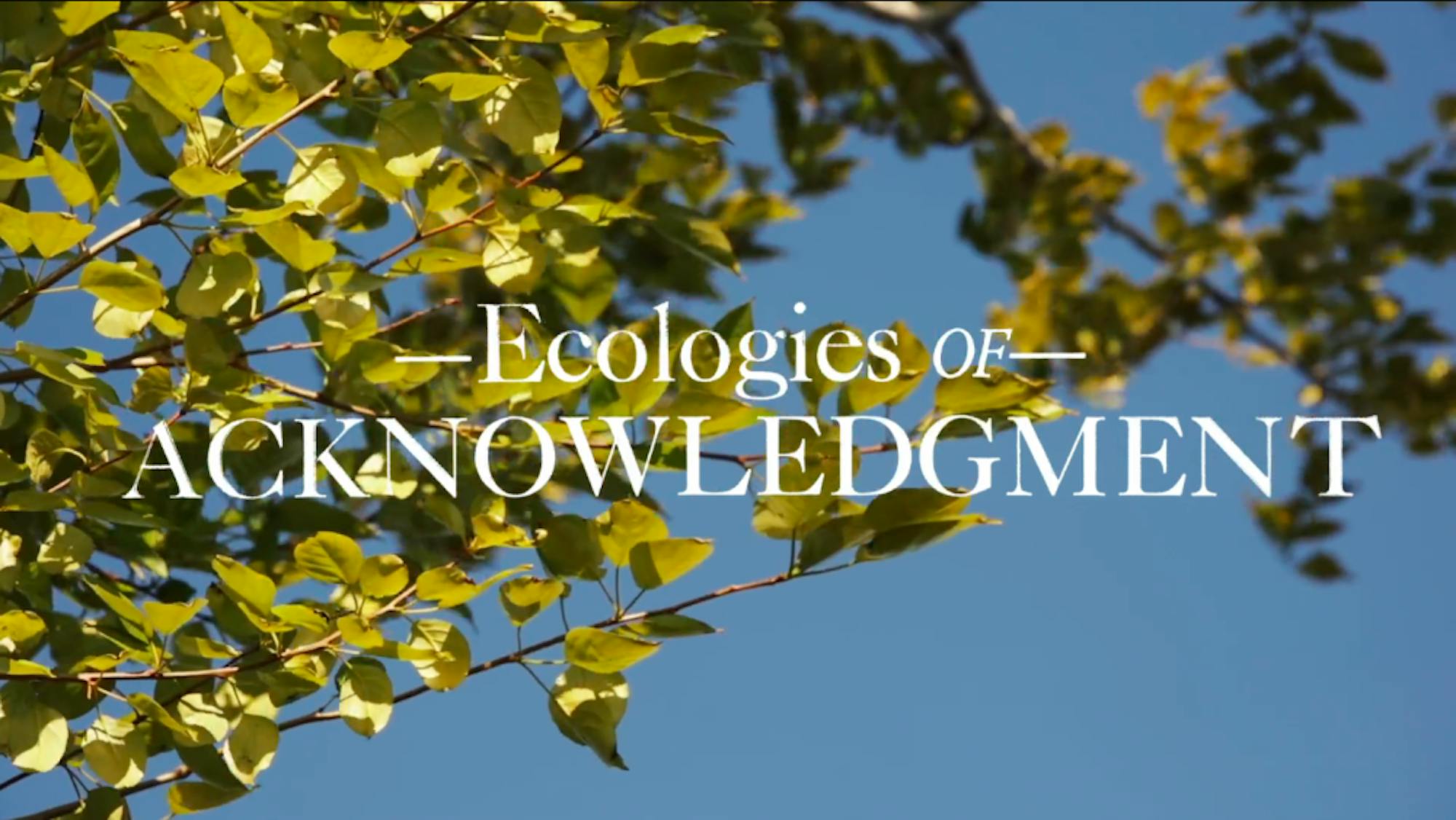This fall, the Tufts University Art Galleries (TUAG) is showing “Ecologies of Acknowledgment,” a collaborative project between writer and interdisciplinary artist Sarah Kanouse and researcher and writer Nicholas Brown. The exhibition, which opened on Sept. 8, 2020, and will remain until March 2021, features a video installation and a framed letterpress printthat consider the process of writing an impactful and lasting land acknowledgment.
The video installation features the voices of three Indigenous women of the Nipmuc, Massachusett and Natick Nipmuc tribes, who have chosen to remain anonymous to “highlight the collective experience of their peoples.” Their voices are overlaid with clips of the natural environment alongside clips of the Western development of the land as they recount the story of historical land use of Deer Island in Boston Harbor and discuss the concept of land acknowledgment. Land acknowledgments are verbal or written statements that recognize Indigenous peoples as a certain land’s original inhabitants.
Deer Island, which now holds a plant that processes water waste, was once the site of the internment of hundreds of Indigenous people. Hundreds of members of the praying towns Natick and Ponkapoag were transported to Deer Island, incarcerated and forced to live in conditions similar to those of a concentration camp, according to “Ecologies of Acknowledgment."
The narrators discuss the lasting effects of captivity, forced removal, displacement and land privatization on Indigenous people. Generations live under the weight of a history of loss and displacement and thus face tremendous difficulties both individually and as members of their communities. The effects of historical trauma can be seen in the widespread violence, poverty, homelessness and poor health plaguing Indigenous people today.
“Ecologies of Acknowledgement” urges its audience to go beyond merely acknowledging and instead accept the relationships and responsibilities that come with living on occupied land. One of the narrators describes a “true land acknowledgment” as “working with the people of that land and asking them what that means for them, for that place,” a process that is symbolized by the exhibition’s heavily annotated letterpress print of a land acknowledgment. “Ecologies of Acknowledgement” requires us to understand that by living on occupied land, we are benefiting daily from the displacement, removal and murdering of Indigenous people.
The conversation surrounding the acknowledgment and appreciation of Native American land and Indigenous communities is gaining national attention. More and more states and cities are officially renaming Columbus Day to Indigenous Peoples Day, and many institutions are releasing formal land acknowledgments. As a university campus located on Wôpanâak and Massachusett territory, Tufts students must expose themselves to Indigenous voices and think deeply about their own relationships with the land they occupy. “Ecologies of Acknowledgement” provides the opportunity to learn the “forgotten history” of Deer Island, which is only a 30-minute drive from Tufts’ campus, and highlights voices belonging to one of the tribes whose land the university occupies.
In the video, the narrator belonging to the Nipmuc tribe reflects on how its name means “freshwater people,” an example of how closely tied Native American peoples are to the land they inhabit. Ecologies, the relationships organisms form with each other and their environments, are especially relevant to the experience of Indigenous peoples. Their identities are intrinsically bound to the land they inhabited for centuries before colonizers arrived in the Americas. Acknowledging this experience and understanding the Western role within it is crucial to building a better future for Native American people. One woman in “Ecologies of Acknowledgement” echoes this point.
“We’ve been here for thousands of years, we’re still here and we will remain here.”






